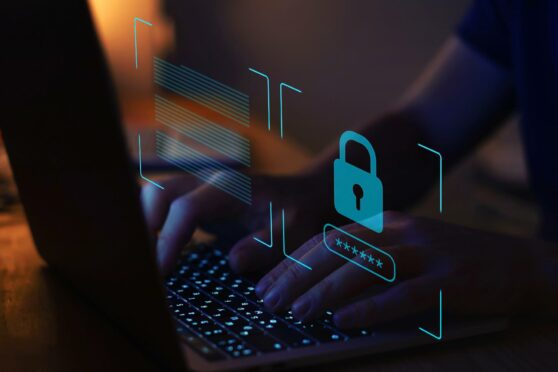In 2021 attacks on corporate networks were reported to have increased by 50% compared to the previous year. Here’s why choosing to study cyber security could be a smart decision – for businesses and students.
-
Some Courier online content is funded by outside parties. The revenue from this helps to sustain our independent news gathering. You will always know if you are reading paid-for material as it will be clearly labelled as “Partnership” on the site and on social media channels,
This can take two different forms.
“Presented by”
This means the content has been paid for and produced by the named advertiser.
“In partnership with”
This means the content has been paid for and approved by the named advertiser but written and edited by our own commercial content team.
According to researchers Check Point, throughout 2021 there was an “upwards trend” of cyber-attacks which reached an all-time high at the end of last year.
The need for cyber security professionals is therefore vital, even more so with a reported shortfall of around 10,000 people per year in the cyber security recruitment pool. The more people who choose to study cyber security, the closer we’ll be to filling that skills gap.
Why are cyber attacks on the rise?
The surge in global cyber-attacks has been put down to several factors, such as the working from home boom caused by coronavirus lockdowns, the rise in value of difficult-to-trace cryptocurrencies and an increase in political tensions.
Digital technologies have also transformed our society, driving economic growth and connecting people like never before.
From smart homes and products to digital manufacturing, the explosion in cyber-connected applications has presented endless opportunities. But it has also led to the rise of cybercrime, with identity theft, fraud, and blackmail becoming more common.
How you can study cyber security in Scotland

That’s why Fife College has been working to address this skills shortage for some time.
It offers a wide range of courses and runs initiatives to make businesses, organisations and individuals aware of how they can be more cyber secure. This includes:
- Courses in cyber security: Fife College offers an HNC Cyber Security course which teaches students how to think like a hacker and gain a deep understanding of security issues and concerns. Other introductory courses offer students insight into characteristics of cybercrime, security principles, technologies and procedures to defend networks.
- Working in partnership with schools: It’s never too early to start preparing for a career in cyber. Through the School College Partnership Programme, Fife College has been offering an introduction to Cyber Security to high school pupils, so they can study for a National Progression Award.
- Helping businesses be more cyber secure: The college also offers short courses in cyber security for businesses. These provide delegates with an overview of the types of cyber threats, and the impact of cyber disruptions to the company’s systems, applications and data. It’s an ideal first step for companies looking to ensure they are cyber secure.
Rebecca Blyth, computing and technologies academic and quality manager at Fife College, said: “As an ever-evolving industry, we are committed to ensuring the cyber security courses we deliver reflect the needs of employers and businesses in Fife and beyond. This will ensure our students get the latest skills and qualifications, preparing them for careers in this fast-paced sector while protecting us all from the hackers of the cyber world.
“It will also help to supply well-qualified candidates for the huge number of roles that will need to be filled in the industry over the coming years. This is a crucial time for our economy as we exit the pandemic, and we are determined to do everything we can to provide opportunities and work with industry to address their skills needs.”
Find out more about available courses and next steps to study Cyber Security at Fife College.









